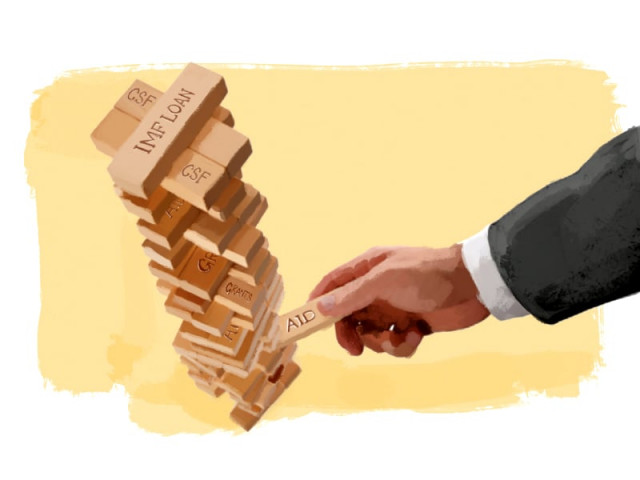Pakistan growth to fall despite rescue funds: IMF
"A more efficient and equitable tax system is needed" IMF says.

Prime Minister Nawaz Sharif has promised to widen the tax base, improve the image of paying taxes and limit corruption. ILLUSTRATION: JAMAL KHURSHID
Pakistan is in the grip of its worst energy crisis in modern history which causes power outages up to 20 hours in parts of the country and has hammered industrial output.
During the last five years, GDP has averaged only three percent, far short of the seven percent considered necessary to lift the country out of poverty and fully absorb the growing labour force.
Central bank reserves have fallen to $6 billion, down from $14.78 billion in fiscal year 2010-11 and are enough only to cover imports for one and a half months.
On September 5, the IMF agreed to extend Pakistan a three-year $6.7 billion loan, making an initial disbursement of $540 million available to the authorities.
The loan is aimed at reducing Pakistan's fiscal deficit -- which neared nine percent of gross domestic product last year -- to a more sustainable level and reform the energy sector to help resolve severe power cuts that have sapped growth potential.
But future disbursements are dependent on the completion of tough economic reforms measured at quarterly reviews.
Repairing the economy
In Pakistan, a country of 180 million people, only around 250,000 people pay income tax and agriculture, which still accounts for 50 percent of the economy, is totally exempt.
To repair the economy, Prime Minister Nawaz Sharif has promised to widen the tax base, improve the image of paying taxes and limit corruption.
The IMF said his budget for the fiscal year to June 30, 2014 "represents an important initial step" but cautioned that "a more efficient and equitable tax system is needed".
Austerity will also push down growth. Before Thursday, the IMF predicted growth of 3.5 percent of GDP but has revised that down to 2.5 percent if the necessary reforms are implemented.
In announcing the loan, the IMF said Pakistan's adherence to the programme would likely encourage financial support from other donors.
The Asian Development Bank has this week announced that it will invest $245 million in Pakistan's power distribution systems.



















COMMENTS
Comments are moderated and generally will be posted if they are on-topic and not abusive.
For more information, please see our Comments FAQ